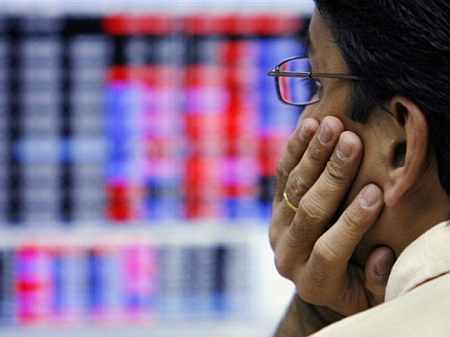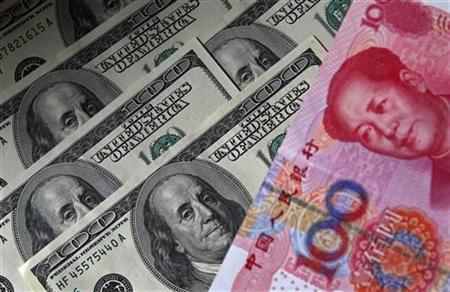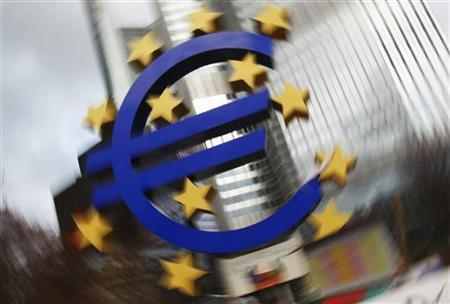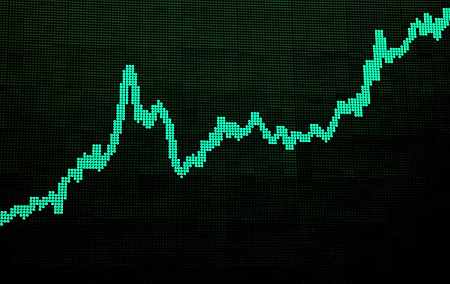Photographs: Courtesy, Business Standard Jitendra Kumar Gupta in Mumbai
Indian equity markets have seen huge inflows of foreign money recently, which many attribute to lower valuations and reduced flow of negative news.
Fauzi Ichsan, managing director and senior economist at Standard Chartered Bank, shares his views on the Indian markets and the global economic situation.
...
It's going to be a bumpy ride for markets: MD, StandChart
Photographs: Reuters
Would you advise your clients to invest in Indian equities? How do you assess Indian equity markets and the recent rally?
We note that the decline in global equity markets in the first half of 2012 was mainly caused by the euro crisis and investors' risk aversion and decision to pull their funds out of the capital markets to the safer cash and US treasury markets.
If the euro situation stabilises, investors will reallocate their funds back to capital markets, including in the fast growing emerging market economies like India.
Yes, fair valuation of stocks attract investment but, more importantly, as global excess liquidity is unleashed to the markets, they will rally, until the next, presumably European, crisis happens, as it does so periodically in the last three years.
...
It's going to be a bumpy ride for markets: MD, StandChart
Photographs: Petar Kujundzic/Reuters
Do you think India can attract foreign investor money if policy inaction continues?
India's economic potential is huge. It's one of the world's largest domestic markets, which explained why it was relatively sheltered from the global recession in 2008, along with China and Indonesia.
If India can accelerate infrastructure development and liberalise the economy further, investment, both foreign and domestic, will accelerate. However, if reforms are stalled and infrastructure bottlenecks remain, then investment growth is likely to slow, though India will still remain one of the world's most attractive markets, given the global environment.
Also, India has both the advantage of high interest rates and high GDP (gross domestic product) growth to benefit from the excess liquidity that is been created around the world.
...
It's going to be a bumpy ride for markets: MD, StandChart
Photographs: Lmar Niazman/Reuters
How do you assess the Euro issue? Is it behind us in terms of negative news flow?
There are two ways to assess the Euro issue. First, the short-term issue of poor market sentiments and liquidity crisis, which the EU (European Union) summit to a certain extent has managed to handle. But, that is the short term; the longer terms structural issue still remains.
Across the Euro zone, governments' expenditure on social security is too big, while their tax revenue is limited because euro GDP growth is close to zero.
This steep discrepancy has to be corrected through massive structural reforms. The short-term approach has worked so far, but the long-term issues still remain. This is why I think it would be a lost decade for Europe.
...
It's going to be a bumpy ride for markets: MD, StandChart
Photographs: Reuters
How can we expect a stable environment if these structural issues remain?
The global economic power is shifting from the West to the East. During this shift, there will be many crises, be it the US, Greece, Spain, Italy, Ireland, Portugal. Now, during these many crises, Asia will be affected.
However, the question is really how much and who will be affected. Countries which have large domestic markets like China, India and Indonesia are less affected by the Euro crises.
...
It's going to be a bumpy ride for markets: MD, StandChart
Photographs: Reuters
Having said that even those countries with large domestic markets, if they have the fiscal deficit and balance of payment deficit, they will be affected.
Because, during these many crises, the global investors sentiments will turn negative and they will pull out from the equity and bond markets wherever they may be. And this will also impact the emerging markets even though the economic fundamentals are relatively solid.
...
It's going to be a bumpy ride for markets: MD, StandChart
Photographs: Yuriko Nakao/Reuters
What is the possibility of a crash like situation, which was observed in 2008-09?
We do not expect recession. At least one good thing is that this time we have US Federal Reserve, ECB (European Central Bank), IMF (International Monetary Fund) and G20, which are more active and responsive, compared to the 2008 crisis. Now, they have the experience of fighting the crisis, while global interest rates are already low.








article